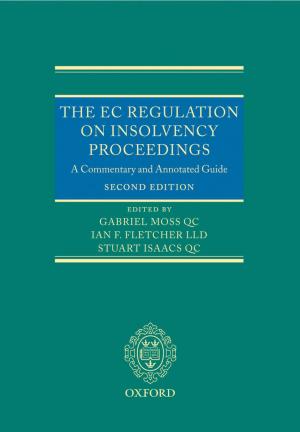Contours of the World Economy 1-2030 AD
Essays in Macro-Economic History
Business & Finance, Economics, Macroeconomics, Economic History| Author: | Angus Maddison | ISBN: | 9780191647581 |
| Publisher: | OUP Oxford | Publication: | September 20, 2007 |
| Imprint: | OUP Oxford | Language: | English |
| Author: | Angus Maddison |
| ISBN: | 9780191647581 |
| Publisher: | OUP Oxford |
| Publication: | September 20, 2007 |
| Imprint: | OUP Oxford |
| Language: | English |
This book seeks to identify the forces which explain how and why some parts of the world have grown rich and others have lagged behind. Encompassing 2000 years of history, part 1 begins with the Roman Empire and explores the key factors that have influenced economic development in Africa, Asia, the Americas and Europe. Part 2 covers the development of macroeconomic tools of analysis from the 17th century to the present. Part 3 looks to the future and considers what the shape of the world economy might be in 2030. Combining both the close quantitative analysis for which Professor Maddison is famous with a more qualitative approach that takes into account the complexity of the forces at work, this book provides students and all interested readers with a totally fascinating overview of world economic history. Professor Maddison has the unique ability to synthesise vast amounts of information into a clear narrative flow that entertains as well as informs, making this text an invaluable resource for all students and scholars, and anyone interested in trying to understand why some parts of the World are so much richer than others.
This book seeks to identify the forces which explain how and why some parts of the world have grown rich and others have lagged behind. Encompassing 2000 years of history, part 1 begins with the Roman Empire and explores the key factors that have influenced economic development in Africa, Asia, the Americas and Europe. Part 2 covers the development of macroeconomic tools of analysis from the 17th century to the present. Part 3 looks to the future and considers what the shape of the world economy might be in 2030. Combining both the close quantitative analysis for which Professor Maddison is famous with a more qualitative approach that takes into account the complexity of the forces at work, this book provides students and all interested readers with a totally fascinating overview of world economic history. Professor Maddison has the unique ability to synthesise vast amounts of information into a clear narrative flow that entertains as well as informs, making this text an invaluable resource for all students and scholars, and anyone interested in trying to understand why some parts of the World are so much richer than others.















